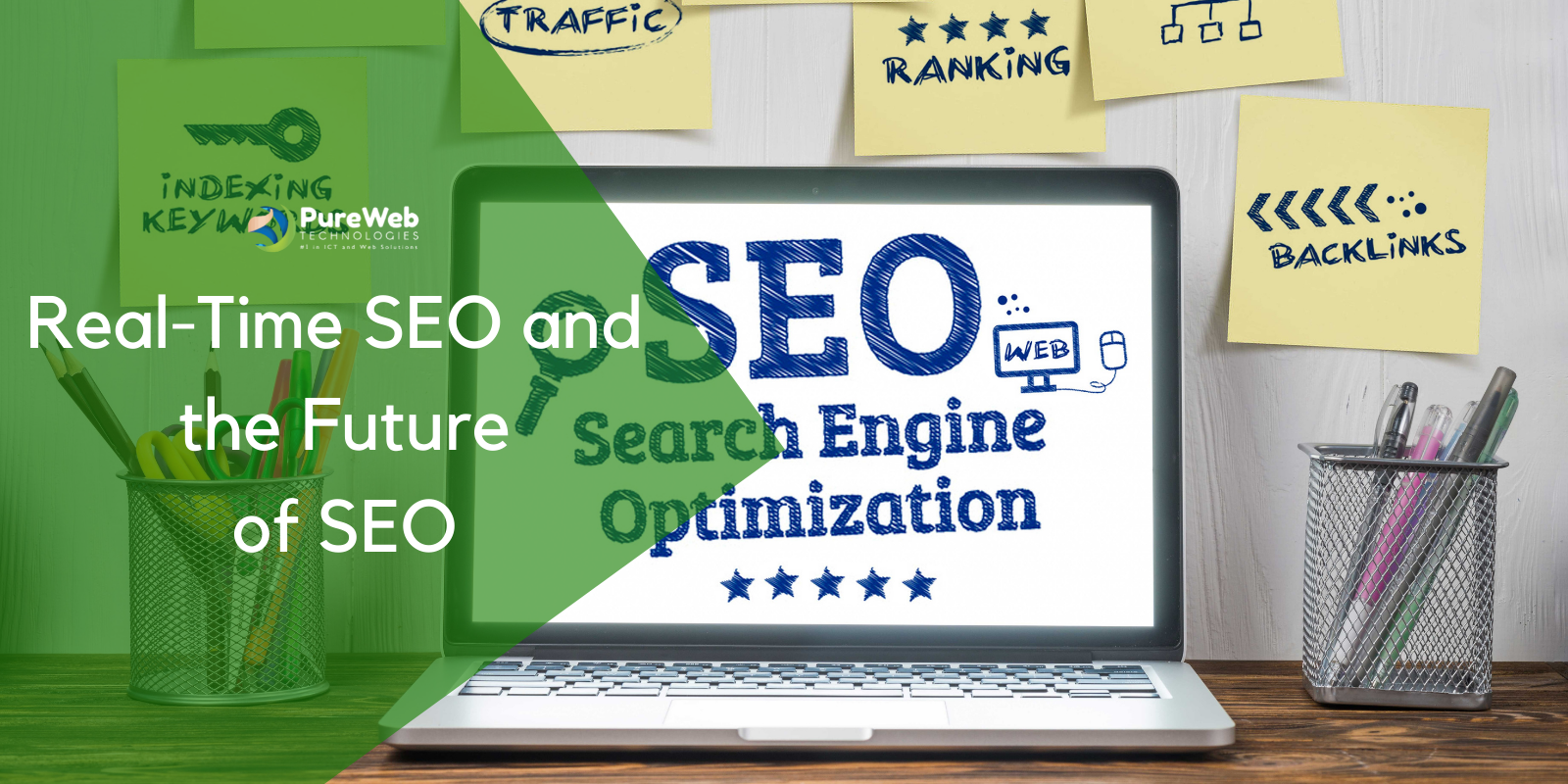
With everything we’ve covered here, you should now know everything you need to know in order to begin a modern and effective SEO campaign. The problem though is that – as we’ve already mentioned – SEO is something that is constantly evolving and changing. And we already know that Google has a lot planned for its search algorithm in the future.
Real-Time SEO
The first big change we can expect going forward is the introduction of a real-time algorithm. This means that any changes made to your site’s SEO might be reflected immediately in the search results. This is expected to affect Penguin predominantly, which means it will have the biggest influence on inbound links and whether your backlink profile is mainly made up of high-quality links or spam.
In this case, adding a spam link to your site could result in an immediate downgrade to your ranking. Likewise though, the reverse could also be true. Using the disavow tool could help you see an immediate recovery – while a very good link could result in an immediate boost to your site.
It’s also not too much of a stretch to expect that in future, we might see this start to apply to other aspects of SEO – including the ranking of sites and pages. We already see news stories appear very quickly in Google’s search results.So what should you do to make sure that you will benefit from these changes? How can you futureproof your site in this regard?
One key tip will be to stay on top of your links disavowing and to make sure that you are constantly adding links and removing the unnecessary ones. Bigger sites may in the future need to have whole dedicated teams working on keeping their links profile healthy around the clock. Likewise, make sure to keep updating your site regularly and to keep the date as a schema in all your content.
Voice Search and AI Assistants
One good way to know what’s coming in the world of SEO is to keep your eyes peeled to industry news sites and specifically Google’s own blog. Another is to think about the direction that Google is heading in and to try and guess what its larger plans are. And right now, everything is pointing toward a heavy investment in voice search and AI. Google is not just a search tool.
With the capability of reading and understanding human language, Google is an AI. And what’s more, it is shaping the way we develop our content – whether we like it or not. And it is embracing this more and more with each new update and each new product. Google Now is the name of Google’s assistant service that combines search, a digital assistant, and all the data that Google collects about us into one incredible tool. This is the real reason that Google had to move toward latent semantic indexing.
It needed to understand the content, rather than just look for matches. And this is why Google needed to start using rich snippets and structured data – so that it could understand key facts from the web. This is what allows Google to use its quick answers box. Ask Google: ‘how old is Barack Obama’ and it won’t just bring up a website – it will tell you. And Google also has ‘localization’ and ‘previous query’ functions.
These allow it to suggest searches based on what you previously searched. For example, if you often research a particular celebrity, then in future, Google might recommend searches relating to that celebrity. Google’s personalized search also takes this into account, while its local search ensures it will also be able to find results that are relevant to the area you’re in.
All of this combines when you use Google Now via voice search – through Google Hello or Google’s new Pixel phones. Here, you are able to conversationally ask Google what time it is, what the highest mountain in the world is, how high is it exactly? This is the direction that Google is moving in but what does it mean for the future of SEO? Will creators miss out when Google starts providing visitors with answers without them needing to visit our pages?
KGO: Optimizing for Google’s Quick Answers
For now, creators can start to focus on the Google Knowledge Graph, which is what powers many of the more complex components on the SERPs. Use semantic markups to ensure that Google will be able to find the answers to your questions, build authority so that Google will know to trust your site and try to use nouns in your language to make it ‘machine readable’.
Being featured in Wikipedia is also thought to be useful for ‘KGO’ (Knowledge Graph Optimization). Linking out to quality resources is also thought to be good for your KGO. Will you gain visitors from being featured in the knowledge graph? Perhaps not – but this is certainly an indication that you have gained Google’s trust and it can do a lot to help improve your brand awareness and gain more trust from the users as well. For those reasons, it is certainly a worthy goal.








